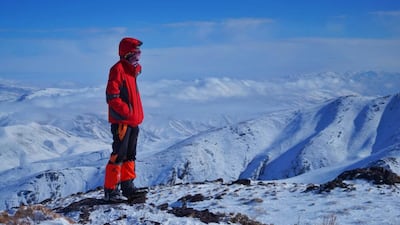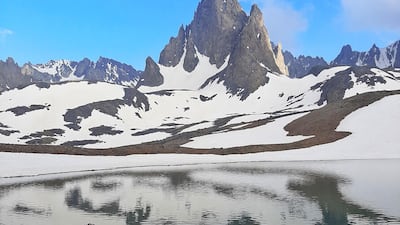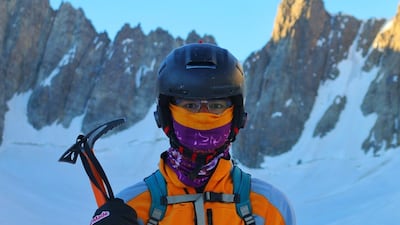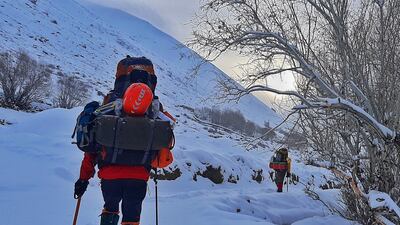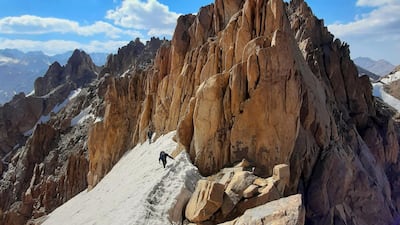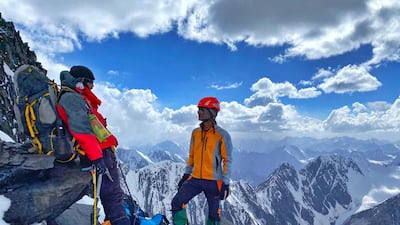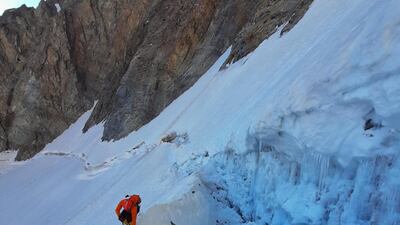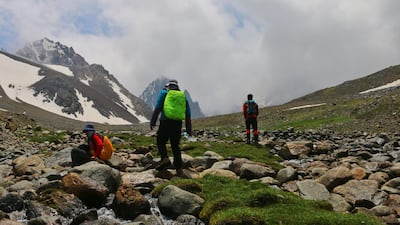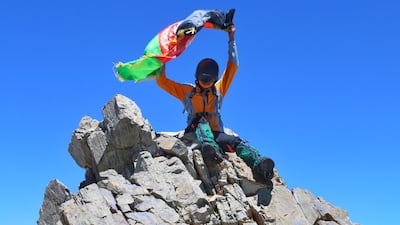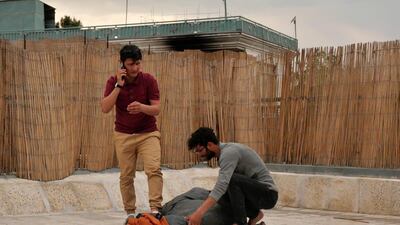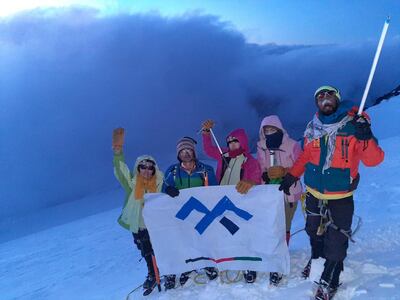Mountain climbing gives Zabih Afzali more joy than anything else in this world. His love for scaling peaks and exploring nature has taken him to 32 of Afghanistan’s 34 provinces and led to nine successful summits so far.
But now, the determined young man, 22, has his sights set on a much more ambitious challenge: becoming the first Afghan to complete the Seven Summits challenge, which entails summitting the highest mountain on each of the seven continents.
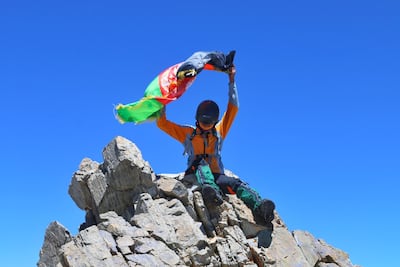
'The wilderness is my home'
When Afzali is not physically climbing a mountain, he is at least planning the next trip up into the clouds. Sleeping bags, tents, backpacks and supplies cover the floor of the office where he talks to The National in Kabul, as Afzali and his friends prepare for a four-day mountain expedition in the central province Bamiyan. It is two days before the start of Eid Al Fitr and the group of 13 plan to spend the holiday in the snow-capped mountains of Koh-i-Baba.
“Being in the mountains provides a freedom like nothing else,” says Afzali, who is originally from Herat, where he runs an internet service provider company while also heading up his own clothing brand business from Afghanistan’s capital.
“My love for climbing mountains means that I don’t see the wilderness as a place to visit, it’s my home.”
If at first you don't succeed...
Despite Afghanistan's reputation for jaw-dropping mountains, climbing them is a difficult hobby to get into because of a lack of experts in the country and access to climbing equipment. Afzali was forced to learn the hard way – through trial and error, and some freezing cold experiences.
"The first mountain I ever tried to climb with friends was in Panjshir, which has an altitude of nearly 6,000 metres," he explains. "It is a peak that no one yet has managed to summit, so we decided we would try.
“When we arrived at the point at which we were to start the climb and saw the size of the mountain, we realised we may have an impossible task on our hands.”
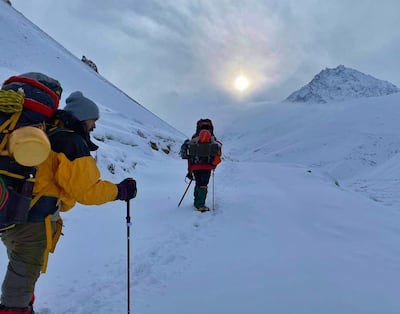
Nevertheless, they attempted it anyway. Wearing completely unsuitable clothing – T-shirts, basic running shoes, thin jackets and no gloves or sleeping bags – they climbed to about 5,000 metres over four days.
It was at that point Afzali says he realised the importance of training.
“Most of the group decided they never wanted to climb a mountain again, but I was motivated to keep going. I started buying climbing gear and learning about how to climb. I then went to Bamiyan to receive training.
“I enjoy everything when it comes to being on the mountains, even being freezing cold. You are far away from the crowded cities, from the responsibility of work and everywhere is clean of rubbish.”
From Afghanistan and beyond
Afzali’s first success story was on Mount Khavand, Kabul’s highest peak, which has a height of 4,000 metres. It was one of his toughest challenges to date.
“I was alone for three days and nights because no one else had wanted to climb with me. There were moments that I worried about being targeted by bandits or being attacked by wild animals, so I didn’t get much sleep.”
He says making it to the top was worth the obstacles he faced during the trip, however.
“It can be very emotional for some people to summit mountains because they’ve had to overcome so many challenges to get there.
“The best feeling for me is when you’re climbing down. For it to be a successful summit you have to make it back down the mountain safely and one mistake can kill you. After summitting you have an adrenalin rush and many accidents occur on the descent.”
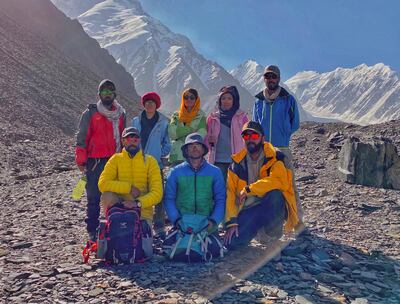
The times he has failed have been down to a lack of equipment or correct gear – a result of inexperience in the early days of his climbing, he admits. But, over the past five years, he has learnt valuable lessons and uses his skillset to mentor and help those new to the sport.
In August last year, Afzali and a group of friends summitted Mount Noshakh, the country’s tallest mountain, during a 23-day expedition. “There were nine of us – three women and six men – who undertook the expedition up Mount Noshakh, which is 7,492 metres high,” he says.
“We had the correct gear, the right clothing and enough food. This was my longest trip so far and it’s motivated me to look for new challenges.”
'I want to show anything is possible'
His most recent ascent was of Mount Shah Fuladi in Bamiyan, and after he and his friends came back they were invited to meet Afghan President Ashraf Ghani. The president told the group they were an asset to the country and, to Afzali specifically, he said the government would support his mission to climb the Seven Summits, Afzali recalls.
“The meeting was great. We spoke a lot about mountain climbing and he and the First Lady told us we were bringing positivity to the Afghan people,” he says.
Since 2016, Afzali has made 16 attempts across 12 mountains and that is why he believes now is the time to venture beyond Afghanistan.
To complete the Seven Summits challenge, Afzali must climb Mount Everest in Nepal, Aconcagua in Argentina, Denali (also known as Mount McKinley) in Alaska, Mount Kilimanjaro in Tanzania, Mount Elbrus in Russia, Mount Vinson in Antarctica and Puncak Jaya (also known as Carstensz Pyramid) in Indonesia.
His first stop is Mount Kilimanjaro, which he intends to climb in June, having already secured $10,000 in funding.
“I want to show anything is possible while bringing a little hope to Afghanistan amid the constant barrage of negative news and conflict.”
